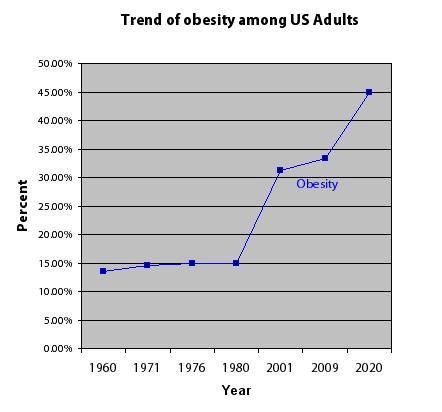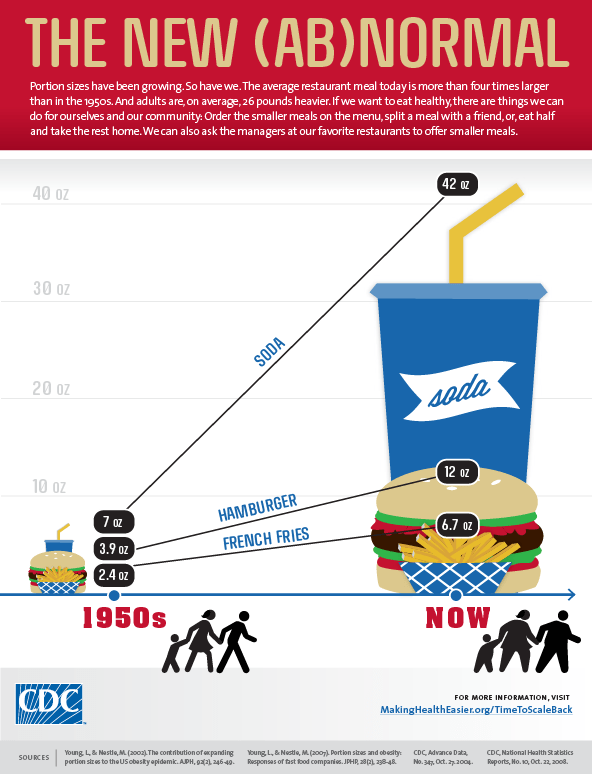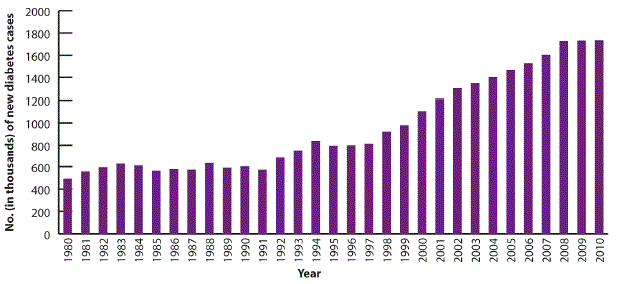Courtesy of a Quick Google Images Search or Two…
Problem:
Cause:
Affect:
Solution:
The End…
-E
Courtesy of a Quick Google Images Search or Two…
Problem:
Cause:
Affect:
Solution:
The End…
-E
Posted by PaleoHikerMD on September 10, 2012 in General Paleo Discussion
Tags: Doctor Life, Opinion, Paleo




No Instagram images were found.

























macarroll
September 10, 2012 at 10:30 pm
Reblogged this on Living Carroll and commented:
Another great article be Paleo MD!! Please read this one, especially for those of you who are on the “paleo” fence.
pjt13
September 11, 2012 at 9:11 am
Thanks for this collection of obesity related slides. They’ll be most useful in my nurse ed classes
ZombieApocalypseKitten
September 11, 2012 at 10:30 pm
While I have no doubt that america is getting fatter, do the graphs above factor in the change of definition of obesity. I think that change happened in the late 90’s. IIRC, Obese went from 32 to 30 BMI
Kenny
September 18, 2012 at 5:05 pm
Seriously, you think the 2% BMI is the root cause? Take a 6′ male with a medium frame, average fitness, average activity. At 217 pounds, he’s 26 on the BMI scale. If you trim off the excess fat, this individual would weight 175 pounds. Am I making this up? Nope. 217 is me eating standard fare, 175 is me eating paleo for two years with no other changes.
If you factor in my highest weight was 225 pounds, we have a whopping fifty pounds of weight loss. Don’t know how many chin-ups you can do, but try hanging fifty pounds around your neck and doing chin-ups. it’s a LOT harder!
ZombieApocalypseKitten
September 20, 2012 at 11:52 pm
I found an article on it. The definition change was around 1998.
“Or, put another way, 25 million Americans who weren’t fat before, are now.”
http://www.cnn.com/HEALTH/9806/17/weight.guidelines/
I’m just curious if the graphs above account for the change.
Igal
September 16, 2012 at 1:27 pm
I’d say there is a strong correlation with HFCS’s history.
Paleo is not really related here.
erniegarcia76
September 16, 2012 at 2:24 pm
I think that is an oversimplified way of looking at things. HFCS is just one piece of the puzzle.
Steve
September 16, 2012 at 3:40 pm
Umm, and where do you find HFCS? You find it in processed foods, PALEO is involved here. And its only once piece of the puzzle.
wartica
September 16, 2012 at 2:18 pm
These findings should come as no surprise to anyone living in America; through lifestyle approaches like Paleo, hopefully people will start to change that number for the better:)
jonwatersauthor.com
Kiran
September 16, 2012 at 6:40 pm
should have put a knife on the paleo plate instead of a fork 🙂
tom scott
September 16, 2012 at 6:58 pm
What I found interesting was the Incidence of Vascular Disease chart. Hypertensive diseases went up while atherosclerosis went down. Can someone explain that to me please.
A lot of nice charts here Doc. Appreciate it.
Morgan
September 16, 2012 at 10:30 pm
On the graph of obesity and carb intake, my understanding was that if you extended the graph further back in time you would see that carbohydrate intake decreased from the early 1900’s to about 1960 while obesity concurrently increased. Thus, carb intake and obesity are not so directly proportional. See this recent post by Stephan Guyenet:
http://wholehealthsource.blogspot.com/2012/09/more-thoughts-on-macronutrient-trends.html#more
Ultimately, It’s most likely poor food choices not specific macronutrients that drives obesity.
primalpat
September 17, 2012 at 5:51 am
Amazing! Love this. Will be reposting on my blog soon.
primalpat
September 17, 2012 at 5:52 am
Amazing! Love this. Will repost on my blog soon 🙂
johneast1973
September 17, 2012 at 9:04 am
Reblogged this on fast, free and strong and commented:
An interesting blog post that graphically shows the link between the rise in obesity in the U.S. and the rise in carbohydrate intake.
Christine
September 17, 2012 at 11:08 am
Would you please make a note that this is not a dietary option for people who have chronic diseases like TYPE ONE Diabetes! Type 2 and type 1 are VERY different and having a source of carbohydrates in your meal plan is essencial to people who inject insulin. It doesn’t have to be fried, or a huge portion – you can steam vegetables like carrots and potatoes (Carb rich) and eat a moderate amount of breads, rice, etc. but – PLEASE – if you or someone you know has diabetes, Type 1 or Juvenile Diabetes is NOT caused by obesity and this would be an extreem diet choice for someone with this condition. There seems to be a huge confusion (among some folks – not pointing fingers here) about how much diet can actually do in relation to curing some diseases… specifically type one diabetes. Juvenile, insulin dependent or Type 1 diabetes (all the same thing) cannot be cured by a diet of this type. I can’t stress that enough, please don’t cut out ALL carbs! Keep it balanced, exercise and drink water. Thank you.
erniegarcia76
September 17, 2012 at 11:29 am
Paleo is an excellent choice for all Diabetics in my opinion. I have many Type I diabetics who have done well with this type of lifestyle, in fact extremely well. In no way do I recommend cutting ALL carbs, Paleo includes plenty of carbs in fruits and vegetables and any type of processed carb will increase our blood sugar in a supra-natural way. I treat both Type I and II diabetics on a daily basis, and both do very well following Paleo principles.
Also, keep in mind that Juvenile, Type I Diabetes, and Insulin dependant diabetes are not at all the same thing. There are plenty of people who develop Type I Diabetes past their juvenile years, and more and more Type II diabetics are becoming insulin dependent due to worsening obesity. They are still Type II diabetics, they have just burnt their pancreatic function to nothing therefore requiring insulin injections. Each of these, while different, could potentially benefit from a Paleo lifestyle. There is simply no such thing as an “essential carbohydrate.”
lemurleap
September 18, 2012 at 12:30 pm
I don’t know much about diabetes but it’s worth pointing out that plants are carbs and half the paleo plate is plants. More than half if you do it like I do it. This includes plant foods like sweet potato and other root vegetables.
lemurleap
September 18, 2012 at 2:38 pm
I don’t know a lot about diabetes but it’s worth mentioning that plant foods are good sources of carbs. And, plants are half of the paleo plate. More than half if you do it like I do it. This includes carb-rich plant foods such as sweet potato and other root vegetables not to mention the occasional banana.
lemurleap
September 18, 2012 at 2:39 pm
Sorry for the double post. Didn’t see the first comment go through.
Allison Bleckley Herschede
September 19, 2012 at 9:41 pm
I am a type one diabetic and I eat low carb paleo-typically less than 30g of carbs a day. Carbs are NOT necessary, simply reduce the insulin. I’ve reduced my insulin from 50units a day to 25. I’m basically all basal. Carbohydrates are most definitely not “essential”. My body burns fat for fuel very nicely. I’m very healthy and have come off a myriad of medications. I no longer take blood pressure meds (bp is perfect), cholesterol meds (my numbers are wonderful now) and a bag full of other meds I no longer need. I lost 55lb and am now at a healthy weight. I also had a healthy pregnancy eating this way and kept my a1c in the 5’s. My baby was a healthy 8lb12oz and I lost all my pregnancy weight.
While you are correct that type 1 is not caused by obesity, something is driving it’s occurrence up. We don’t know the trigger, but I think it’s very possible that the inflammatory foods most Americans eat (grains for example) could cause the autoimmune response.